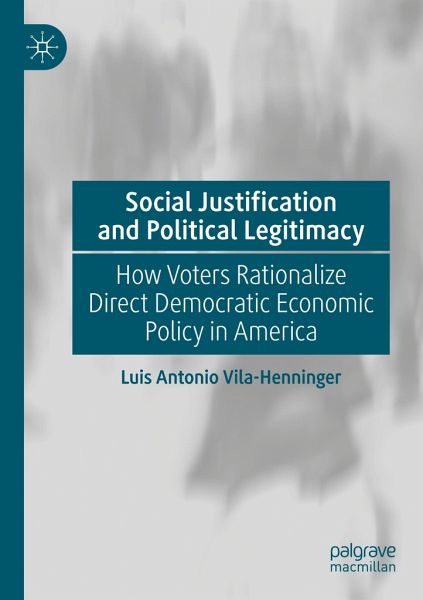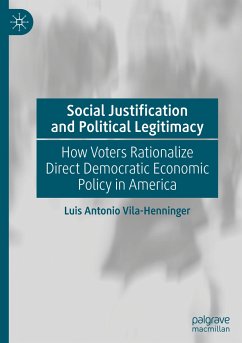
Social Justification and Political Legitimacy
How Voters Rationalize Direct Democratic Economic Policy in America
Versandkostenfrei!
Versandfertig in 6-10 Tagen
91,99 €
inkl. MwSt.
Weitere Ausgaben:

PAYBACK Punkte
46 °P sammeln!
This volume explores voters' political rationalizations. The author analyzes semi-structured interview data from 120 American voters collected from 2013-2015 about their positions on three economic referenda-or "direct democratic economic policies" (DDEPs) on the Arizona state ballot from 2008-2012. Building on the literature on voter reasoning and rationalization, the author firstly probes how the intersection of economic position and partisan affiliation shape partisan voters' rationalizations of their DDEP positions. Secondly, he investigates the political and economic discourses that voter...
This volume explores voters' political rationalizations. The author analyzes semi-structured interview data from 120 American voters collected from 2013-2015 about their positions on three economic referenda-or "direct democratic economic policies" (DDEPs) on the Arizona state ballot from 2008-2012. Building on the literature on voter reasoning and rationalization, the author firstly probes how the intersection of economic position and partisan affiliation shape partisan voters' rationalizations of their DDEP positions. Secondly, he investigates the political and economic discourses that voters use to justify their DDEP positions. This book extends classic sociological theories of individual-level and collective legitimacy, along with contemporary theories of voter rationalization. The findings also help to build theories of American political ideology and values, neoliberalism, moral economy, and norms of self-interest.












